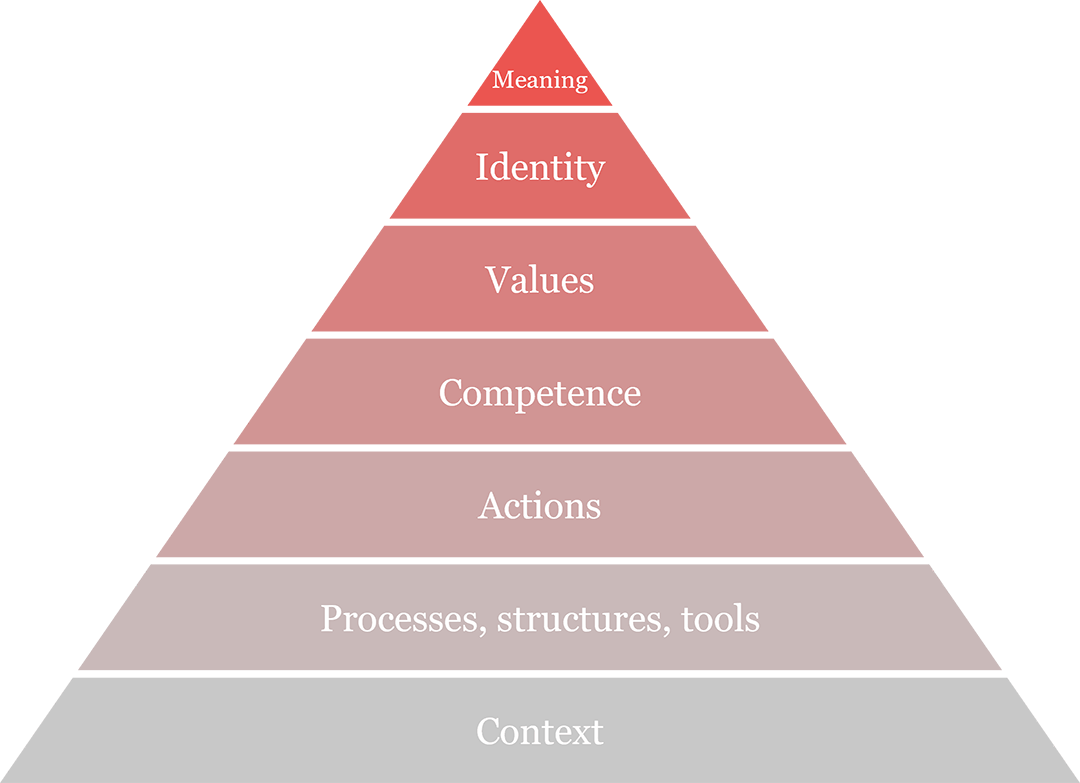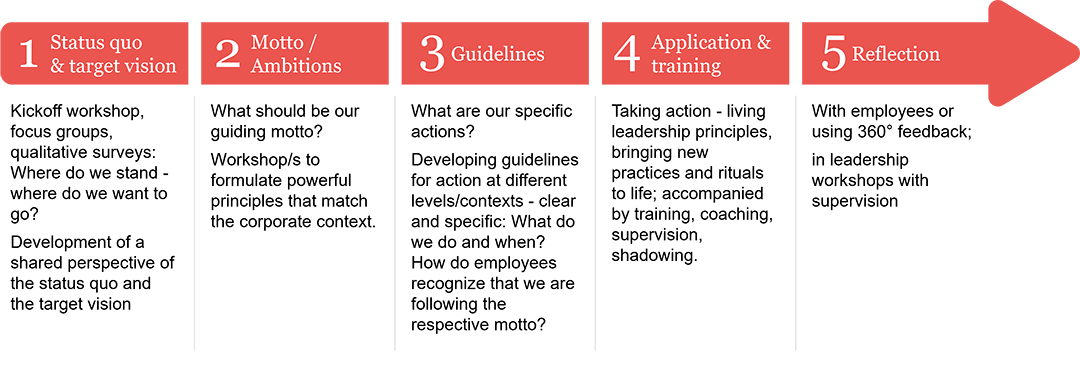Leadership Principles & Culture
- According to which principles do we lead in our organisation?
- Do the established leadership principles of our organisation reflect our culture?
- How would someone recognise a top leader in our company?
Good leadership - designed and defined together - is the bedrock of a successful organisation. It needs a road map which provides orientation and support in difficult situations as well as for young or new leaders. Leadership principles are only ever as good as the way they are lived. They remain powerless in the absence of understanding, and it takes a lot of energy to implement them if they contradict the culture in which they are practiced.
More and more, leadership is shared among several people - whether in lateral leadership situations, in agile organisations, or within changing project teams. On the one hand, this calls for everyone to be flexible enough to take on different roles, regardless of their function, and on the other hand, it requires a shared understanding as to what leadership is all about.
It has always been the case that good leadership should attract rather than create pressure: Until recently, companies did get away with the latter fairly well. However, as the current labor market situation shows, attracting and retaining the best people in the long term requires fascination, cooperation, development opportunities, room for self-fulfillment, and a healthy work-life balance. This, in tandem with the pressure to deliver results and the huge challenges in the overall corporate environment, pushes leaders to their limits. There is a need for a framework - based on coherent leadership principles and a leadership culture that is lived collectively - one that offers orientation and provides support in prolonged crises in order to be able to act constructively and in a context-appropriate manner. Clear leadership principles that are understood, internalised, and authentically embraced by all managers are the basis on which new ways of working together across all hierarchies can thrive and grow.
Levels of Development

* Levels of development, inspired by Dilt's model of logical levels
To understand the starting point, all levels have to be taken into account, in which case development usually begins most consistently “right at the top”.
Approach
Ever since 5P was founded, we have carried out a multitude of development processes for leadership principles and leadership competencies, each one designed specifically for the respective organisation.
Here is one possible approach to establishing leadership principles:

The development process is a collaborative effort that incorporates the corporate context and the maturity level of the current leaders as well as the goal that has been defined together. We develop that goal based on guiding questions.
- Where are we leading our employees and why - and who are they or what do they need to get there successfully?
- What is the style we want to convey to do justice to our goal?
- Which personalities are driving our organisation forward, who are the key players, and how do we deal with the typical challenges?
- How do we make decisions?
- How do we establish or set goals?
- How do we handle conflict and how do we advance the development of individual people or teams?
- What error culture do we need in order to deliver performance and promote innovation and creativity?
- How do we communicate in everyday situations and in the spirit of the strategy?
- How does a new employee recognise the prevailing leadership culture?
The more openly and honestly leadership principles are discussed and worked on, the more likely a leadership culture will develop from this foundation. This requires honest monitoring and lived habits or rituals which act as a compass for the individual leader and can be experienced in day-to-day life. For many leaders, this process yields new insights and also new challenges that call for personal development and new leadership competencies. And this is exactly why the process cannot end at this point. On the contrary, binding goals for development and measures have to be established. Furthermore, regular reflection loops which focus on the topic of leadership in the annual cycle are essential to become effective.
